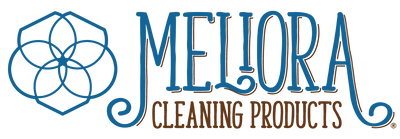This week, Women's Voices of the Earth released a new report titled: “Beyond the Label: Health Impacts for Harmful Ingredients in Cleaning Products” and we recommend that people check it out.
By accessing new ingredient information now available under the requirements of the California’s Cleaning Products Right to Know Act (SB 258) - a state law that has resulted in nationwide impact - the report calls attention to some of the most problematic ingredients used in household and institutional cleaners, that have, until recently, been kept a secret.
Many of the toxic chemicals highlighted in the report are being disclosed for the first time in these products. Women's Voices of the Earth (WVE) reviewed hundreds of products sold throughout the nation and found reproductive toxins, hormone disruptors and allergens used throughout brands, in varying products from detergents to carpet cleaners, and even in cleaners that market themselves as green.
What's in the report?
Cleaning product exposures is just one part of the everyday toxic burden we face that affects our health. And that toxic burden is not equally shared, but is disproportionately shouldered in the U.S. by frontline workers, low-income communities and people of color. You can’t just look at the health impacts of cleaning products alone, because no one experiences these impacts in isolation. And unfortunately, our fellow cleaning product manufacturers typically look through that lens – designing products and ensuring ingredient safety as though we all live in a world without multiple other stresses that impact our health.
Five of the chemicals highlighted in the report are components of fragrance — an ingredient category that has long been shrouded in secrecy by the fragrance industry; an industry that sets its own standards for safety. As a result, fragrance ingredients like butylphenyl methylpropional (Lilial) have come to be widely used in cleaning products. Butylphenyl methylpropional is a known reproductive toxicant (recently banned from products in the European Union).
None of the toxic chemicals identified in the report are essential to the efficacy of the cleaning product. This exposure is unnecessary and is adding to the widespread public health burdens.
Chemicals highlighted in the report include:
- Diethyl Phthalate: A reproductive toxicant and respiratory toxicant
- Butylphenyl Methylpropional: A reproductive toxicant
- Hexamethylindanopyran (Galaxolide): A persistent pollutant, water contaminant and potential endocrine disruptor
- Tetramethyl Acetyloctahydronaphthalenes (OTNE): Water contaminants
- Hydroxyisohexyl 3-cyclohexene carboxaldehyde (HICC): Potent skin allergen
- Methylisothiazolinone (MI): Potent skin allergen
- Methylchloroisothiazolinone (MCI): Potent skin allergen
- Glycol Ethers: Reproductive toxins
The report also takes a look at car wash products, noting that these products are uniquely under-disclosed (even in light of new requirements) and impacts from occupational exposures to car wash products is woefully under-researched.
How can I use this information?
The report includes a how-to guide on what to look for on the label and online.
But honestly, the people buying or using cleaning products shouldn’t bear the burden of having to review lists of chemicals to help them identify safer products. Ultimately, the burden needs to be on cleaning product manufacturers to evaluate their products and make ingredient choices, based on the real lives and health concerns of their customers. At Meliora Cleaning Products, we have always done everything we can to be transparent about our ingredients and verify that every single product is MADE SAFE certified.
For a long time, we've known that companies can (and do) hide lots of ingredients in cleaning products because the ingredients were not required to be on the label. Thanks to new laws, it's possible to better understand the common toxic ingredients in products. We know that companies formulate products differently, and often without these ingredients, for European sale. It's time we started naming names and getting common toxins out of cleaning products in the USA, too. We feel strongly about this and you will not find any ingredient mentioned in this report within any of our products.
People should be able to go into a store, purchase a cleaning product, and no matter the brand or the cost it should be safe for them to use. That’s the bottom line.
To find out more, check out the report. It's currently available in both English and Spanish. Please help spread the word!



